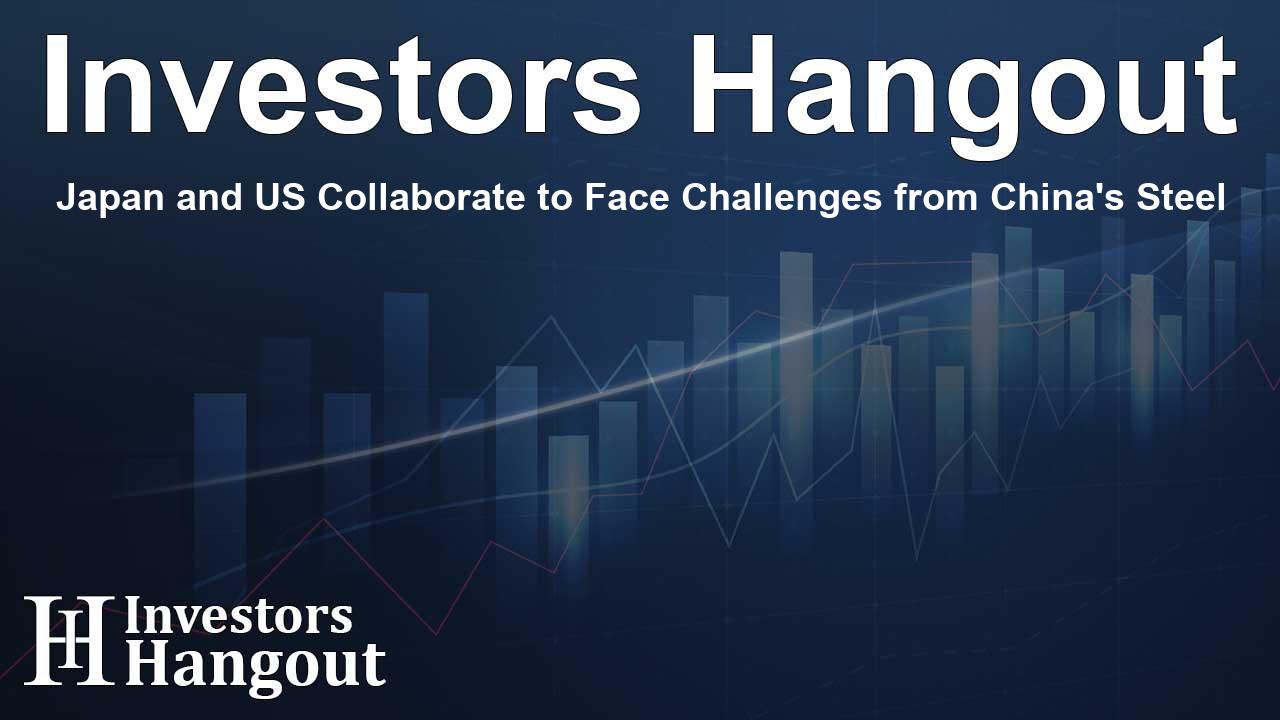Japan and US Collaborate to Face Challenges from China's Steel

Japan and the US: A United Front Against Steel Challenges
Amid shifting global economic landscapes, Japan and the United States find themselves at a pivotal moment regarding their steel industries. With China now at the forefront as the largest steel producer in the world, it’s become clear that these countries need to collaborate rather than confront each other. Prominent political figure Shinjiro Koizumi underscores this idea as he vies for leadership within Japan.
Shared Concerns Over Cheap Chinese Steel
During a recent debate, Koizumi pointed out a critical issue: the competitive threat from China's ability to produce low-cost steel. This concern resonates strongly with stakeholders in both Japan and the United States steel industry. The main question is: how can the two nations come together to tackle the consequences of China’s steel overproduction flooding the global market?
The Impact of Cheap Steel on Democratic Countries
Koizumi emphasized that the influx of inexpensive steel, which doesn’t comply with renewable or clean energy standards, endangers the market for countries committed to fair trade practices. This competition not only hampers local economies but also threatens the dedication of democratic nations to uphold market fairness.
Negotiations on Industry Protection
Takahiro Mori, Vice Chairman of Nippon Steel, has conveyed that Japanese steelmakers are pushing for measures to restrict steel imports from China. This initiative aims to reinforce their local market’s stability, allowing Japanese manufacturers to compete on a fair playing field.
The Role of Political Leadership
Political backing is essential for navigating these industrial issues. Recently, both Nippon Steel and U.S. Steel reached out to U.S. President Joe Biden about ongoing negotiations. Responses from U.S. political figures, including those running for president, have varied, with some expressing skepticism regarding the merger.
Election Dynamics and Diplomatic Strategies
As Koizumi prepares for a vital leadership role in Japan, he noted the challenges presented by political campaign seasons. He cautioned that overreacting to election-related rhetoric might harm essential diplomatic relationships.
Strengthening Alliances
Sanae Takaichi, another leadership candidate, voiced her support for the proposed merger, emphasizing the importance of cooperation among allied nations. She argued that perceptions of threats stemming from foreign investments must be carefully balanced against the advantages of a strong bilateral relationship.
Future Initiatives for Dialogue
Koizumi’s vision includes not just trade and industrial collaboration, but also discussions focused on resolving historical grievances, such as the abduction of Japanese citizens by North Korean agents many years ago. He advocates for a new approach in these conversations, one that emphasizes direct dialogue and understanding across generations.
Exploring New Opportunities
As the political environment shifts, highlighting new opportunities for dialogue will be crucial. Koizumi envisions a platform for open communication, free from traditional barriers, to constructively engage with North Korean representatives.
Conclusion
In conclusion, Japan and the U.S. find themselves at a crucial intersection, where cooperation in the steel sector could lead to collaborative strategies against the global market challenges posed by China. With leaders like Shinjiro Koizumi taking the stage, the focus will remain on fostering a spirit of partnership that tackles both economic and diplomatic challenges directly.
Frequently Asked Questions
What is the main focus of Shinjiro Koizumi's campaign?
Shinjiro Koizumi aims to strengthen Japan's steel industry and promote collaboration with the United States to address the challenges posed by China's steel production.
How does cheap Chinese steel affect democratic countries?
Cheap Chinese steel threatens the markets of democratic countries that adhere to fair trade practices, potentially causing instability in their economies.
What steps are Japanese steelmakers taking regarding imports from China?
Japanese steelmakers, including Nippon Steel, are advocating for the Japanese government to take action to limit the import of cheap steel from China.
How has the political climate influenced the steel negotiations?
The political climate, especially during election seasons, influences perceptions and negotiations, prompting leaders to navigate diplomatic responses with care.
What broader initiatives does Koizumi support?
In addition to concerns about the steel industry, Koizumi advocates for initiatives promoting dialogue with North Korea to resolve historical issues and support open communication.
About The Author
Contact Dominic Sanders privately here. Or send an email with ATTN: Dominic Sanders as the subject to contact@investorshangout.com.
About Investors Hangout
Investors Hangout is a leading online stock forum for financial discussion and learning, offering a wide range of free tools and resources. It draws in traders of all levels, who exchange market knowledge, investigate trading tactics, and keep an eye on industry developments in real time. Featuring financial articles, stock message boards, quotes, charts, company profiles, and live news updates. Through cooperative learning and a wealth of informational resources, it helps users from novices creating their first portfolios to experts honing their techniques. Join Investors Hangout today: https://investorshangout.com/
The content of this article is based on factual, publicly available information and does not represent legal, financial, or investment advice. Investors Hangout does not offer financial advice, and the author is not a licensed financial advisor. Consult a qualified advisor before making any financial or investment decisions based on this article. This article should not be considered advice to purchase, sell, or hold any securities or other investments. If any of the material provided here is inaccurate, please contact us for corrections.
